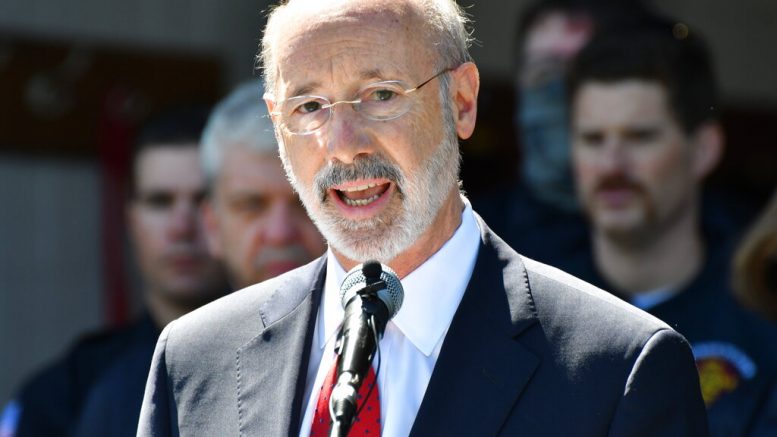HARRISBURG (AP) — The governor of Pennsylvania is asking state lawmakers to return to Harrisburg within a month to extend a statewide disaster emergency intended to help stem the commonwealth’s opioid addiction crisis.
In a letter to the General Assembly, Tom Wolf said he plans an Aug. 5 renewal of the disaster emergency declaration first issued in January 2018. He asked lawmakers “to consider returning” to extend the declaration by Aug. 26 “to allow for a renewal of our collective efforts in this space and a continuation of this vital work.”
The governor can no longer unilaterally extend the 90-day disaster emergency declaration, something he had done more than a dozen times, following voters’ approval in May of a state constitutional amendment curbing the emergency powers of a governor in Pennsylvania.
Emergency declarations now end after 21 days and lawmakers have sole authority to extend or end them at any time with a simple majority vote. Governors could previously issue an emergency declaration for up to 90 days and extend them without limit, and a two-thirds majority vote by lawmakers was required to end such declarations.
The opioid disaster declaration widened access to the state’s prescription drug monitoring program and made it easier for medical professionals to get people into drug treatment more quickly. The governor said his administration and lawmakers had worked together on the monitoring program overhaul and on prescription limits, increased treatment access and safe disposal methods for unnecessary prescription drugs.
Wolf said many things originally done under the authority of the declaration are now done by other means such as executive branch authority, but the declaration is still needed to allow the health department to keep sharing prescription drug monitoring program information with other agencies.
The coronavirus pandemic, he said, has brought not only death and suffering as well as financial hardship and isolation but also “a heartbreaking increase in opioid overdoses nationwide.” Pennsylvania’s opioid overdose rate increased 16% last year, he said.









































